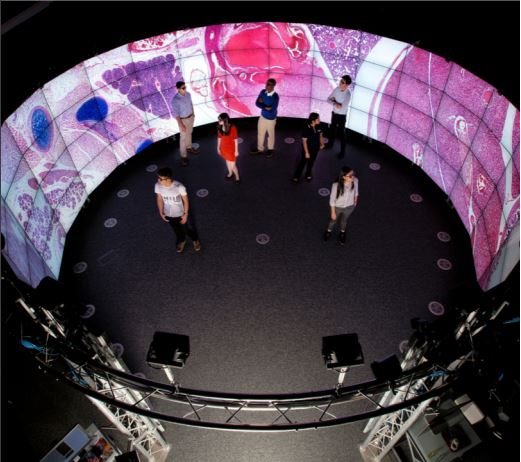Every year, one of our favorite parts of the International Supercomputing Conference (ISC) is getting together with our customers to discuss the innovative and meaningful ways Dell HPC systems and technologies are helping them do incredible things. In a sector that was once dominated by universities and research institutions, we are seeing that the same principals of traditional HPC are now applicable to a new set of customers, ranging from financial services to healthcare.
Dell issued a press release today announcing the latest in HPC innovations, as well as highlighting customers CHPC, Gustave Roussy, TACC, Tapad and Sensus. In this blog, I wanted share even more of the great work our customers are doing with Dell HPC solutions. We have so many great collaborations, highlighting a few is like picking a favorite child – impossible. But, alas, here a few others customers solving some daunting challenges with the Dell HPC team and solutions:
The Commonwealth Scientific and Industrial Research Organization (CSIRO), Australia’s national science agency, recently announced its newest Dell HPC cluster, Pearcey. Powered by Dell PowerEdge M630 blade servers and PowerEdge R930 rack servers, Pearcey supports CSIRO research activities in a broad range of areas such as bioinformatics, fluid dynamics and materials science.
“High performance computing facilities such as Pearcey are an integral part of the advanced information and communications technologies that enable CSIRO science to solve real issues.” said Angus Macoustra, executive manager of Scientific Computing at CSIRO. “Pearcey joins our portfolio of scientific computing facilities – these world class computing and storage services are essential to the delivery of CSIRO’s research portfolio and allow us to accelerate research impact, and delivery to CSIRO’s customers compared to past systems.”
Monash eResearch Centre
Monash eResearch Centre in Australia drives pioneering research in areas ranging from finance to medicine. The centre wanted to retain its leading role among research teams worldwide as a place for cloud, storage and HPC facilities, and created a software defined storage solution built on Dell and OpenStack.
“We have given researchers on-demand access to cloud-based HPC storage through Dell, Ceph and OpenStack,” said Steve Quenette, Deputy Director, Monash eResearch Centre. “There is no more waiting in queues for storage to be allocated or some VPN to be established. It’s storage to meet everyone’s needs when they want it.”
As a result of key learnings from Dell’s relationship with Translational Genomics Research Institute (TGen), the Dell HPC System for Life Sciences is deployed at the Neuroblastoma and Medulloblastoma Translational Research Consortium (NMTRC). NMTRC is made up of a team of oncologists, pediatricians, geneticists and patient families using insights from each child’s genome to improve patient outcomes. To develop customized treatments fast enough to help patients with limited intervention time frames, the NMTRC deployed its Dell HPC System to rapidly sequence genomes and make sense of disparate big data.
“We’ve gone from treating every child exactly the same way to being able to develop individualized therapies,” said Dr. Giselle Sholler, Chair of the NMTRC and Director of the Pediatric Oncology Research Program at Helen DeVos Children’s Hospital. “We’re now able to stop the progression of cancer in 60 percent of our patients, and today some are cancer-free. Our work with TGen and Dell is helping us identify which medications a patient absolutely needs and which ones they don’t, which is important to improve the long-term health outcomes of pediatric cancer survivors.”
At Virginia Tech, hundreds of professors and scientists are performing cutting-edge research to solve today’s health problems and make new scientific discoveries. The university had been working with Dell in HPC for several years, and turned to Dell again when it was looking to create NewRiver, its newest HPC system. The system is based on 126 Dell PowerEdge R730 servers, and has an aggregate peak computing capacity of 152 TFLOPS (trillions of floating point operations per second), and 33TB of aggregate memory. Using NewRiver, university researchers can take advantage of better processing speeds to solve computational problems 2.5 times faster, speeding time-to-insight and more quickly solving critical problems.
“Our idea is to take what geneticists are doing in genome analysis and accelerate it so they can identify mutations faster,” says Wu Feng, a Virginia Tech professor of computer science who uses the NewRiver cluster. “The bottom line is that researchers can use the new Dell and Intel HPC cluster to get their answers more quickly, they can run ‘what if’ scenarios more quickly, and they can make insights, innovations and discoveries more quickly.”
We’re having a great time at ISC 2016. If you’re an existing customer or want to learn more, please swing by and say hello on the show floor. We have plenty of new projects we’d be happy to share with you.
